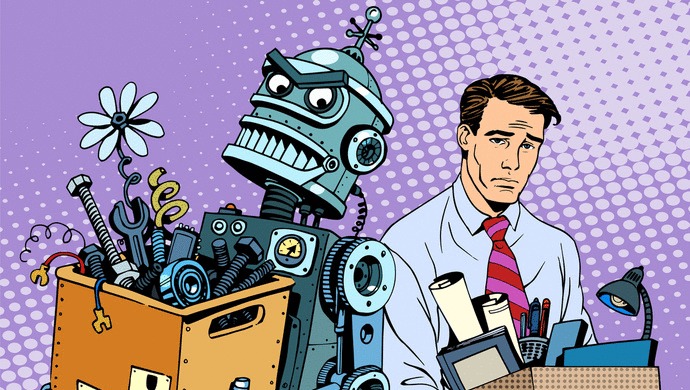Don’t believe all the doom and gloom surrounding AI — they need us more than we need them!

The rise of artificial intelligence has caused much worry in the workplace, largely because many professionals fear that they’ll be replaced by intelligent software in the near-future.
However, despite the impressive gains that AI has made in recent years, there are plenty of reasons to believe that it will continue to need human workers well into the future. As astonishing as these intelligent machines can be, there are still many things they’re incapable of tackling alone.
Here are some of the ways humans and machines are already working together, and why AI will continue to need human workers despite all the predictions of job loss.
Machines can’t do it all
We need to dispel the myth that ‘machines can do everything’ — human workers will always be necessary to some extent.
While basic labourers who handle mundane, repetitive tasks can easily see their jobs become automated by new innovations, intelligent workers who are needed to analyze large sums of information and make responsible decisions will always be called upon for a diverse array of business purposes.
Furthermore, existing market research demonstrates that modern consumers aren’t too happy about a robot-dominated future and still want to see a human face at the cash register.
Also Read: Smart retail startup Blue Mobile raises Series C funding from Ant Financial
Companies everywhere are racing to digitise and automate as much of their operations as possible, largely because they believe the benefits derived from cutting costs will outweigh everything else. As a matter of fact, consumers are beginning to notice that businesses are benefiting by cutting human workers out of the equation, and they’re not entirely happy about it.
A recent report noted that half of all consumers surveyed said that they preferred a mixture of AI and human shopping rather than an entirely automated process. This is only natural, as customers want a friendly face to turn to when things go wrong or they have a question – or, dare it occur, the pleasure of small talk.
A good experience with AI may be enough to wow some consumers into returning, but businesses of the future will need to take the human element into consideration when thoroughly automating their operations. Going too far into the direction of the robots could give your company a lifeless feel, as customers everywhere are going to want to feel as if they’re doing business with other humans rather than emotionless machines that simply process their payments and ship the products.
Elsewhere, we’ll also see AI continue to need human workers because the robots haven’t always proven adept at taking over our jobs.
Some skills still need a human touch
In a number of industries, some areas still require a human touch — unless you want a commercial disaster or PR nightmare on your hands.
Workers compensation and other employment costs may seem pricey, but there are many jobs that AI can do far better than humans like analysing pictures to detect a constant trend — things that an algorithm can do infinitely better than the human mind. Machines nonetheless have a harder time trying to match human creativity, and many automated programs struggle to appear lifelike and realistic when dealing with human customers.
As Forbes has pointed out, some key jobs will always demand a person for a wide variety of reasons.
Also Read: Fintech startup Mihuru is on a mission to make flying affordable for Indians
Accountability, for instance, is something that simply can’t be automated. A business may think they can save some money by automating the manufacturing process in its entirety, but if they lack a human manager to ensure that safety standards are being met, costly and dangerous floor accidents could occur.
Similarly, automated payment systems aren’t always sufficient at making sure workers are adequately compensated, and fully digitised management systems would have a hard time determining who’s worthy of a promotion and who isn’t.
In other words, don’t expect the machines to swoop in and replace everything just yet!
Deloitte has done an extensive amount of research into how humans and machines can work together to produce better results than ever before, and it’s worth considering if you’re interested in the future of AI in the workplace. By and large, Deloitte’s findings echo the results being championed by other AI experts in the marketplace; machines are going to supercharge humans more than they will come to replace us.
They’re simply tools and can be harnessed for good or evil ends depending on how they’re leveraged by human actors. Human professionals will soon be automating the mundane and repetitive tasks they do every workday, which will enable them to focus more of their time and energy on more creative and specialized pursuits more suitable for humans.
Whether it’s ensuring creativity isn’t stifled or that accountability is maintained, humans will always be needed in the workplace. Don’t believe all the doom and gloom surrounding the rise of AI – intelligent machines will continue to need human workers to operate them for years to come.
—
e27 publishes relevant guest contributions from the community. Share your honest opinions and expert knowledge by submitting your content here.
The post Why AI isn’t going to steal your job appeared first on e27.